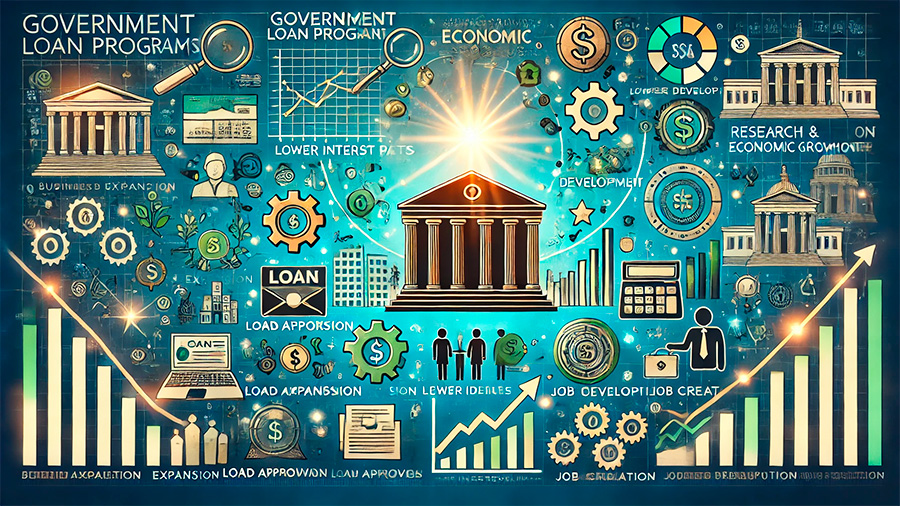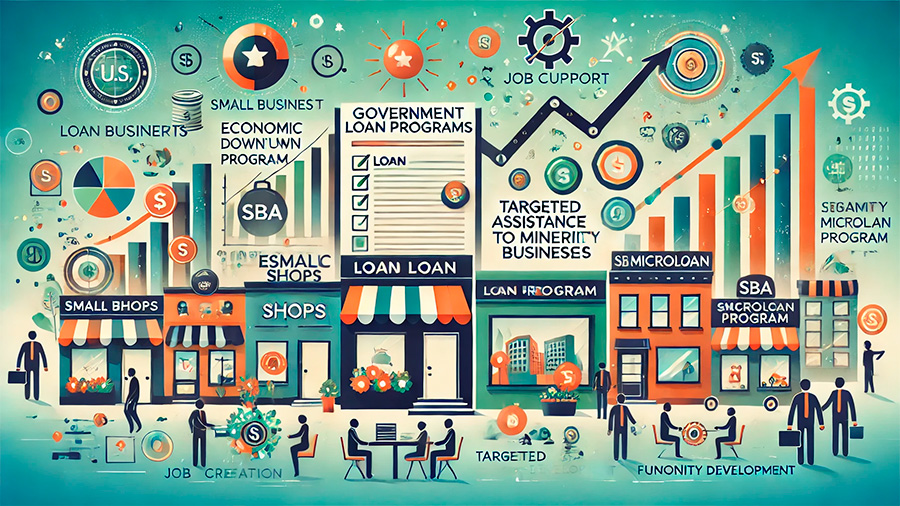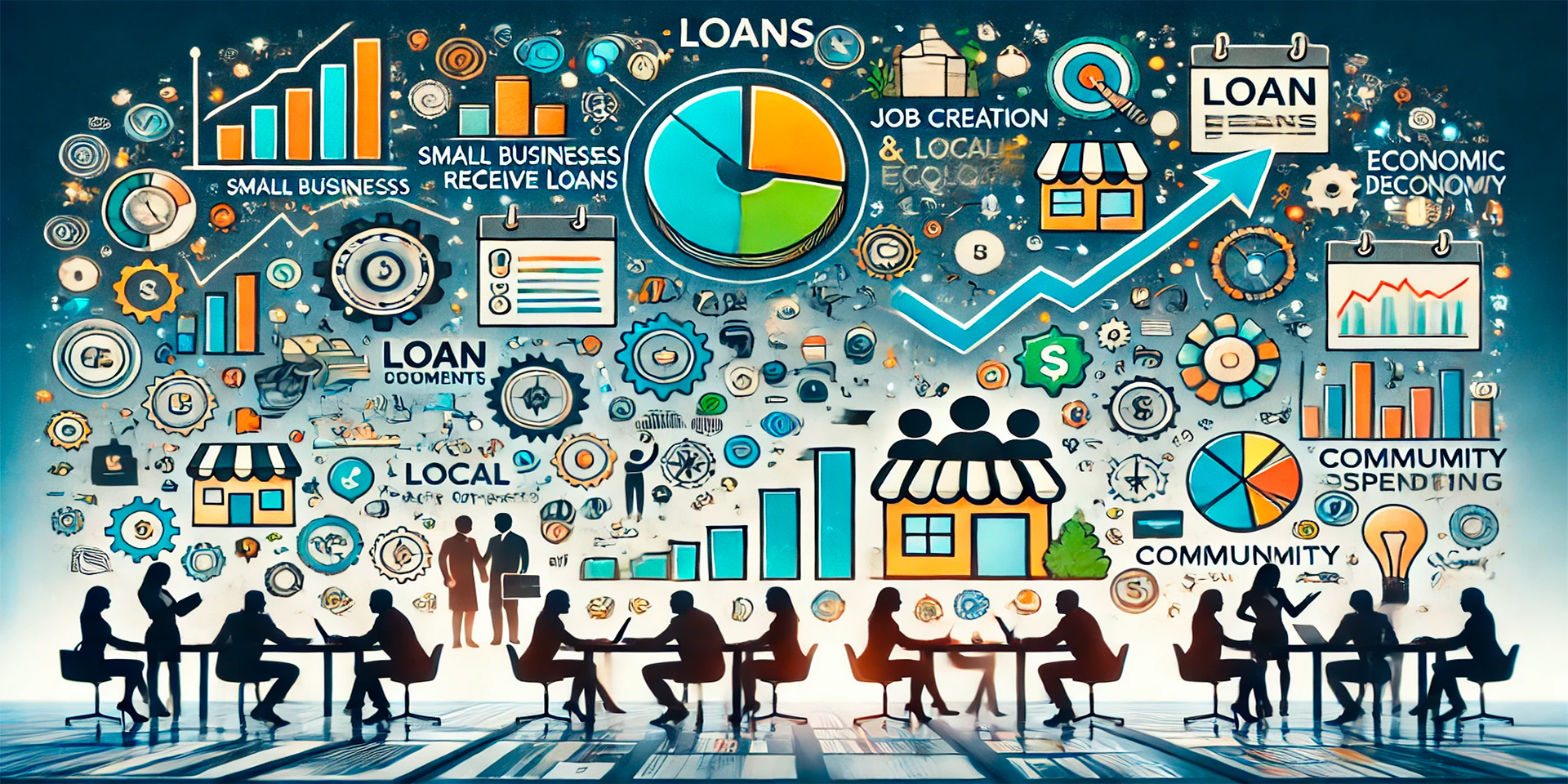Government loans play a critical role in boosting economic recovery, especially during periods of financial crisis or recession. These loans provide essential capital to businesses that may struggle to secure financing from traditional lenders during uncertain economic times. By offering favorable terms, low-interest rates, and flexible repayment schedules, government loans enable businesses to sustain operations, invest in growth, and create jobs—ultimately helping to stabilize and revitalize the economy.
During times of economic downturn, government intervention through loan programs can significantly impact recovery efforts. Federal financing supports businesses of all sizes, particularly small and medium-sized enterprises (SMEs), which are often the hardest hit by economic challenges. Through these loans, businesses gain access to the capital they need to survive, innovate, and expand, creating a ripple effect that stimulates economic growth.
Government Loans as a Lifeline for Struggling Businesses
One of the most immediate benefits of government loans during economic recovery is their role as a lifeline for struggling businesses. In times of economic uncertainty, many businesses experience reduced revenue, increased operational costs, and disruptions to supply chains, all of which can lead to cash flow challenges. Government loans offer crucial financial support by providing businesses with the capital needed to cover essential expenses such as payroll, rent, and inventory.
For instance, during the COVID-19 pandemic, the Paycheck Protection Program (PPP) in the U.S. provided forgivable loans to businesses, helping them retain employees and cover operating costs. This direct financial assistance was instrumental in preventing widespread layoffs and keeping businesses afloat during one of the most significant global economic crises in recent history.
By ensuring that businesses can continue operating, government loans not only help individual companies survive but also prevent economic collapse at a broader level. The ability of businesses to maintain operations and avoid layoffs supports consumer spending, which is vital for economic recovery.

Stimulating Growth Through Government-Backed Financing
Beyond providing immediate relief, government loans also play a crucial role in stimulating long-term economic growth. Many government loan programs are designed to encourage businesses to invest in expansion, research and development, and technological innovation. By providing access to affordable capital, these loans empower businesses to pursue growth opportunities that may otherwise be out of reach.
Government-backed loans often offer more favorable terms than traditional bank loans, such as lower interest rates and longer repayment periods. This makes it easier for businesses to take on new projects, hire additional employees, or expand into new markets. The economic benefits of these investments are far-reaching, contributing to job creation, increased productivity, and overall economic expansion.
For example, the U.S. Small Business Administration (SBA) provides a range of loan programs designed to support business growth, including the 7(a) Loan Program and the 504 Loan Program. These loans help businesses finance major investments such as purchasing real estate, upgrading equipment, or expanding operations, all of which are critical to driving economic recovery.
Encouraging Innovation and Modernization
In addition to supporting growth, government loans are essential in encouraging innovation and modernization within industries. Many loan programs are specifically targeted at fostering technological advancement, sustainability, and infrastructure improvements, all of which are key drivers of economic recovery and long-term competitiveness.
For example, government loans may be used to fund research and development initiatives that enable businesses to develop new products, improve manufacturing processes, or adopt cutting-edge technologies. These innovations can enhance efficiency, reduce costs, and open up new revenue streams, positioning businesses to thrive in an evolving marketplace.
Moreover, government financing can support green energy initiatives and sustainability projects, helping businesses reduce their environmental impact while creating new economic opportunities. By investing in modernization, businesses not only strengthen their competitive advantage but also contribute to broader economic and societal goals, such as energy independence and environmental stewardship.
Supporting Small Businesses and Underserved Communities
Small businesses are the backbone of the U.S. economy, and government loans are particularly vital in supporting their recovery and growth. Unlike large corporations, small businesses often lack the financial reserves needed to weather economic downturns, making them more vulnerable to economic shocks. Government loans provide much-needed access to capital for these businesses, helping them survive during challenging times and enabling them to grow once the economy begins to recover.
Programs like the SBA’s Microloan Program provide smaller loans to startups and small businesses that may not qualify for traditional bank loans. These loans are critical in helping entrepreneurs launch new businesses or scale existing operations, contributing to job creation and economic revitalization.
In addition to supporting small businesses, government loans play a vital role in fostering economic growth in underserved communities. Many government loan programs are designed to target economically disadvantaged areas or minority-owned businesses, helping to level the playing field and promote inclusive economic development. By providing financing to businesses in these communities, government loans help stimulate local economies, create jobs, and reduce economic disparities.
Government Loans and Economic Stability
Another important aspect of government loans is their ability to provide stability during times of economic uncertainty. By ensuring that businesses have access to capital, government loans help prevent widespread business closures and bankruptcies, which can exacerbate economic downturns. When businesses can continue operating, they contribute to economic activity, support jobs, and generate tax revenue—all of which are essential for a stable recovery.
Moreover, the availability of government loans during crises helps restore confidence in the economy. Knowing that government support is available, businesses are more likely to invest in their operations and pursue growth opportunities, even during periods of economic uncertainty. This confidence helps drive economic recovery by encouraging spending and investment.
How to Access Government Loans for Business Recovery
For businesses seeking to access government loans during economic recovery, understanding the various loan programs available is essential. In the U.S., the SBA offers several loan programs, including the 7(a) Loan Program, the 504 Loan Program, and disaster relief loans. Each program is designed to meet different business needs, from funding operational expenses to financing long-term investments in infrastructure and technology.
To qualify for government loans, businesses typically need to demonstrate financial stability, provide a detailed business plan, and meet specific criteria outlined by the loan program. Many government loan programs also require collateral or personal guarantees, particularly for larger loans. However, the terms are often more favorable than those offered by private lenders, making government loans an attractive option for businesses during economic recovery.
In addition to federal loan programs, state and local governments often offer financing options tailored to specific industries or regions. Businesses should explore all available resources to identify the loan programs that best meet their needs.
Conclusion
Government loans are a powerful tool for boosting economic recovery, providing businesses with the capital needed to survive and thrive during challenging times. By offering favorable loan terms, supporting growth, and fostering innovation, government loans play a crucial role in stimulating economic activity and creating jobs. For businesses looking to navigate periods of economic uncertainty, government-backed financing offers a vital lifeline that can help drive recovery and long-term success.


